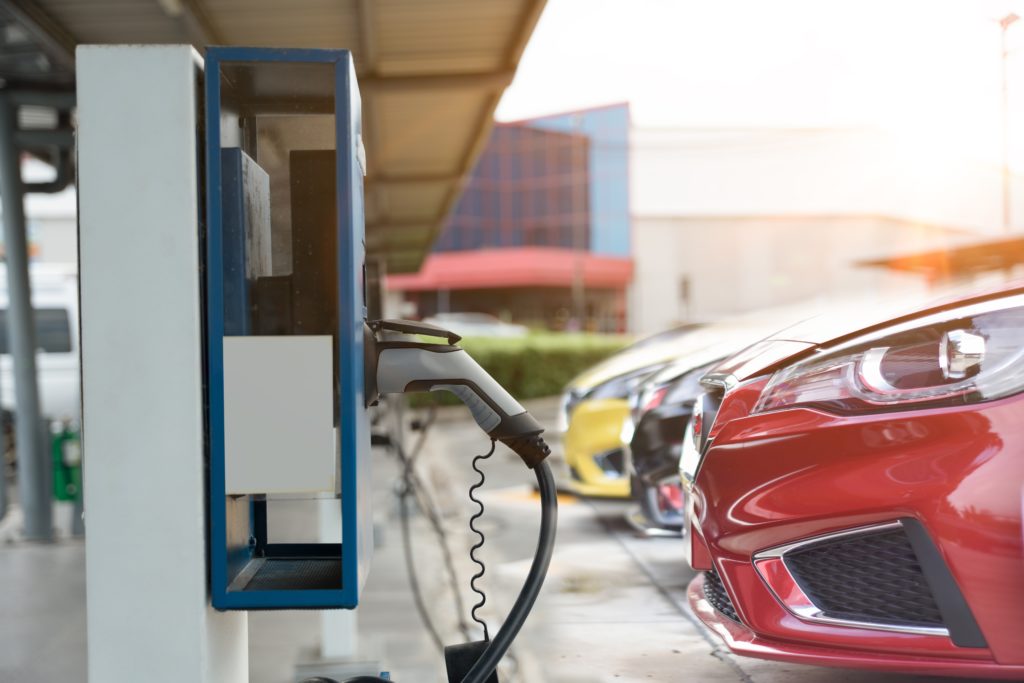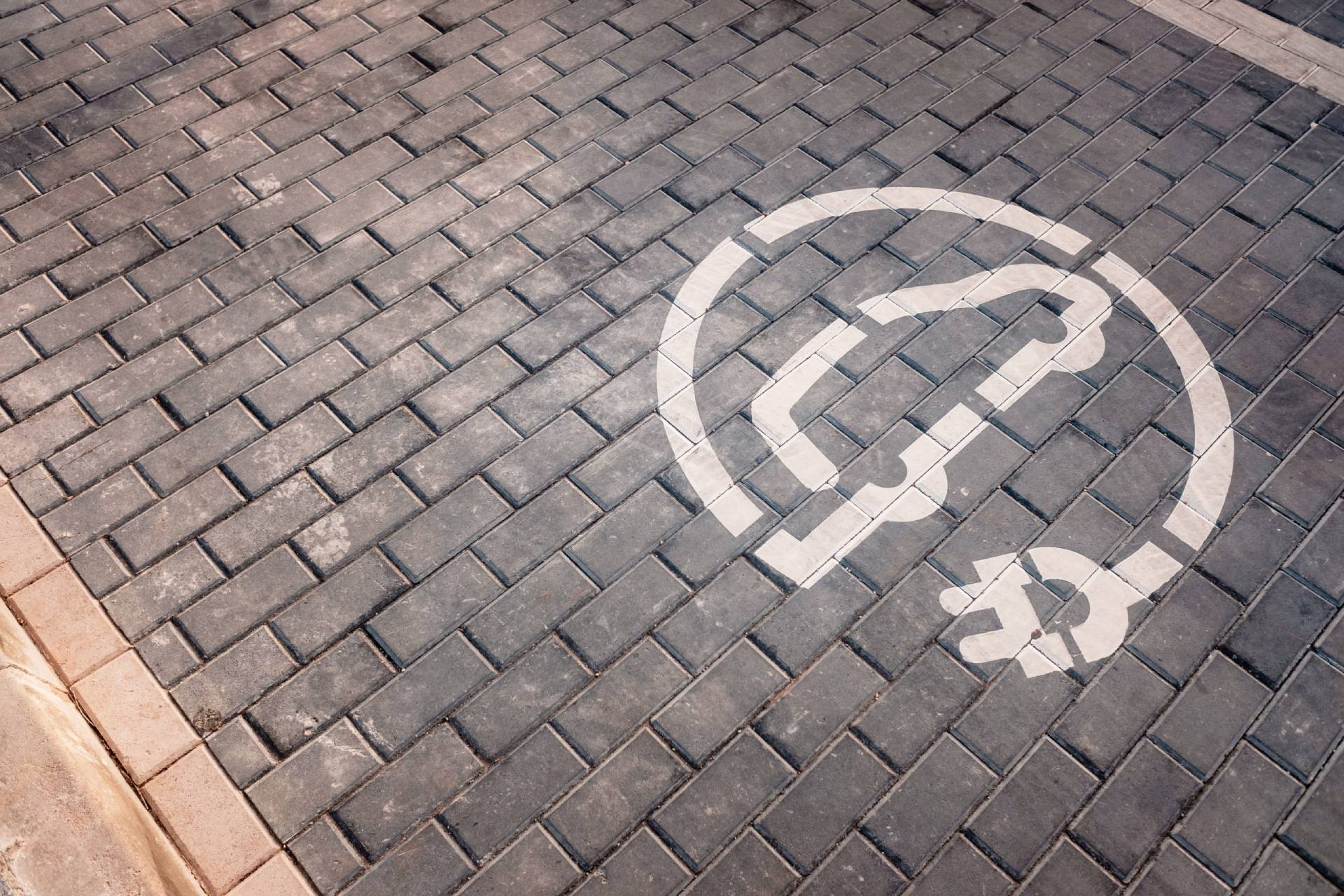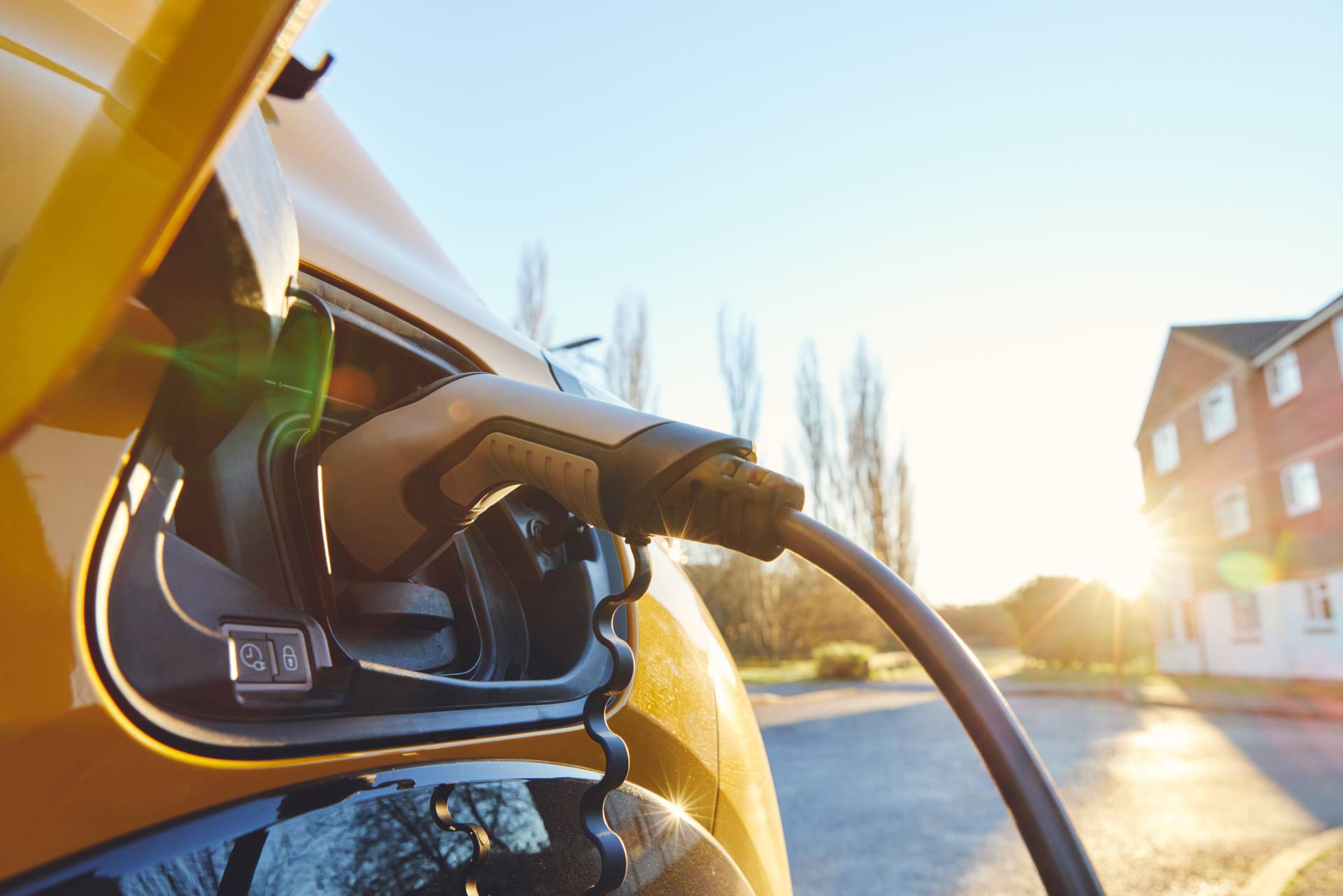How NEVI Funding Will Impact Our Electric Vehicle Infrastructure
Ten years ago, electric vehicles comprised less than one-quarter of one percent of total U.S. car sales. But after the U.S. House of Representatives passed the Bipartisan Infrastructure Investment and Jobs Act, which includes a $5 billion investment in state-administered grants for deploying electric vehicle (EV) charging stations nationwide, we’re on track for thousands of new station installations in the next decade.
NEVI funding will help states develop charging networks across communities, including rural, disadvantaged, and hard-to-reach areas, propelling the administration’s decarbonization goals forward through state-level transportation projects. Now that the bill is officially law, the next step is putting plans in place to mobilize these new federal investments so they can have the greatest impact on communities across the country.
Getting these funds from the federal level to state and local governments will take a little while. Moreso, it will require planning and coordination across all levels and buy-in from local communities.
You EV Charging Station Installation & Funding Experts
LilyPad EV LLC., powered by Shields Harper & Co., is building the fueling network of the future. We have pioneered charging station planning and installation since 2009 and offer extensive electrical expertise with trusted trade partners. Our recent acquisition by SHC has only improved our ability to provide effective, well-thought-out solutions to meet your EV charging project expectations—no matter your industry.
We’ve worked with over 400 companies across 42 states and have installed charging stations at over 1000 locations nationwide. Our stations have charged EVs more than 2 million times, and we’ve recently been named Chargepoint’s Reseller of the Year.
As our award-winning team proves, we go above and beyond to provide our customers with dependable experience. Our services include comprehensive consultation for your EV charging needs, site surveying, project management, and professional EV charging station installation.
We’re committed to providing businesses with all the knowledge and information they need to make educated decisions regarding EV Charging investment. That’s why we’re here to explain everything you need to know about the Bipartisan Infrastructure law and National Electric Vehicle Infrastructure Program (NEVI) funding for businesses.
Read on to learn how to take advantage of NEVI funding for charging station installation.
Upgrading Our National EV Infrastructure
This will be the first-ever U.S. investment in electric vehicle charging stations. Let me repeat that. For the first time in US history, the federal government is investing directly in the charging infrastructure that we need to transition away from an exclusively gas-powered auto market.
One of the primary barriers to adopting electric vehicles is a need for more access to public charging stations. Currently, electric vehicle drivers may face “range anxiety;” drivers fear they could be stranded on the road without access to fuel. To support the transition to electric vehicles, we need to dramatically increase the buildout of charging stations across the country.
A National Drive for EV Investment
The $7.5 billion of funding in the bipartisan infrastructure bill can expand critical access to chargers for millions across the country. While some can charge their electric car in their driveway, public chargers are necessary for many who don’t have access to off-street parking. Deployment of the chargers will also prioritize hard-to-reach areas with little access to electric vehicle chargers. These public stations will be essential for long-distance electric vehicle travel.
Legislators from both sides of the aisle have shown their support for investments in electric vehicle chargers. There have recent proposals for joint legislation that would provide tax incentives to build out clean vehicle infrastructure. The infrastructure bill itself passed with overwhelming bipartisan support in the Senate, with 19 Republicans voting in favor in addition to all Senate Democrats. This is further evidence that more across the political spectrum are seeing the benefits that electric vehicles offer and the necessary steps we need to take to make their rollout a reality.
In the past 10 years, electric vehicle sales have grown 10-fold in the U.S., and this historic bill is one of the many advances toward the electric vehicle transition. In July, Electrify America, funded by Volkswagen as part of its emissions cheating scandal settlement, announced it would more than double its network of electric vehicle charging stations by 2025. In August, President Biden announced a goal to have 50% of US car sales be electric by 2030. In September, New York joined California and Massachusetts in committing to phasing out the sale of gas-powered cars by 2035. The Environmental Protection Agency proposed a rulemaking that will strengthen vehicle emissions standards, and Congress is debating a major extension and reform of the federal electric vehicle tax credit that will make electric cars more affordable and spur technological innovation.
The Basics of BIL & NEVI Funding
The reality of NEVI funding is that most of the resources available are getting distributed using algorithmic programs. So the primary way for businesses to access direct funds is by going through state EV grants and incentive programs.
The U.S. Department of Transportation’s (DOT) Federal Highway Administration (FHWA) NEVI Formula Program will provide funding to states to strategically deploy electric vehicle (EV) charging stations and establish an interconnected network to facilitate data collection, access, and reliability.
Funding is available for up to 80% of eligible project costs, including:
- The acquisition, installation, and network connection of EV charging stations to facilitate data collection, access, and reliability
- Proper operation and maintenance of EV charging stations
- Long-term EV charging station data sharing
There are some conditions, though.
EV charging stations must:
- be non-proprietary
- allow for open-access payment methods
- be publicly available/available to multi-corporate commercial motor vehicle operators
- be located along designated FHWA Alternative Fuel Corridors (AFCs).
If a state and DOT determine that all AFCs in the state are maximally developed, then the state can propose alternative public locations and roads for EV charging station installation.
FHWA must distribute the NEVI Program Formula Program funds made available annually through 2026. This will ensure each state receives an amount equal to the state FHWA funding formula determined by U.S. Code 104. We know that jargon is probably a little dense, but what this boils down to is that business access to NEVI funding comes from states submitting plans to the DOT and U.S. Department of Energy. These plans will describe how the state intends to distribute said NEVI funding. The FHWA will approve state plans on a rolling basis by September 30, 2022.
Additionally, DOT will establish a grant program by November 15, 2022, for states and localities requiring additional assistance to strategically deploy EV charging stations under this program. Additional funding eligibility and considerations will apply.
Where To Begin:
With all that technical speak out of the way, where does that leave you?
State departments of transportation (DOTs) will spearhead these efforts to ensure NEVI funding is distributed strategically. Once DOTs get the ball rolling, they can pull in partner agencies to manage specific projects. We’re already seeing these organizations collaborating on projects from previous funding sources like the Volkswagen Clean Air Act Settlement and the American Recovery and Reinvestment Act. This is unprecedented and will require more collaboration and information sharing due to its magnitude.
Tapping into readily available resources will also be instrumental in speeding up this process. For example, the Federal Highway Administration (FHWA) alternative fuel corridor designation process enables easy coordination to identify roadways ready to support electrified travel. There’s no reason to reinvent the wheel when foundational resources and consortia like this already exist; instead, the pace of approvals needs to increase.
State agencies should also engage with their network of community stakeholders. These leaders and organizations deeply understand their community’s socioeconomic, policy, and cultural considerations, so they’ll be instrumental in helping state officials determine and mobilize plans in disadvantaged communities. Getting the buy-in from community members will ensure that charging infrastructure is deployed strategically.
Transparency, collaboration, and technical assistance will also be key. This is where the federal departments of transportation and energy will be most beneficial to their state counterparts. At a national level, these agencies can help facilitate knowledge sharing across agencies and state lines so that every state can access necessary resources.
Suppose state agencies apply lessons learned from other projects and community stakeholders, and federal agencies help spread this information across states. In that case, the process of deploying these funds will run more smoothly and efficiently.
How States Can Use NEVI Funding
To best take advantage of these funds, states should get plans in place so that projects are actionable when the funding makes its way down the pipeline. This will ensure that states make the most significant impact with federal funding as quickly as possible.
Clearly, states already setting their own EV targets, providing incentives, and stimulating the market will be in a better position to take advantage of federal funding.
One state leading the way in EV policy is Arizona. Arizona requires regulated utilities to develop a transport electrification plan at the state level, which will set them up for success once this new funding is available. Arizona utility companies also work hard to spread awareness and interest in EVs through incentive programs. For example, the Salt River Project (SRP) is providing rebates for commercial charging installations and fleet assessments and incentivizing EV adoption through its Drive Electric program.
Tennessee provides a great example of multiple agencies collaborating to line up transportation electrification projects and processes. Working together, state agencies (including TDEC and TDOT), power providers like the Tennessee Valley Authority, cities, universities, electric vehicle and charging providers, businesses, and advocacy groups developed a comprehensive plan to mobilize the state on vehicle electrification. These groups enable projects and charging initiatives to increase awareness and adoption of EVs across the state.
States that have been working toward increased transportation electrification for years may have a leg up as the funds make their way into local communities, but it’s not too late for others to start putting plans in place. Once federal investments make their way to the state level, clear processes and channels for collaboration will ensure that these funds create the greatest impact possible for local communities.
LilyPad EV: EV Charging Experts For Your Business.
LilyPad EV has been here since the very beginning of the EV market. We offer optimized, expert, turnkey solutions to meet your EV charging needs and benefit your commercial or multi-family residential buildings. The knowledge we’ve gained from over a decade of installing EV charging stations makes us an unmatched advisor in all things EV charging.
More than ever, investing in the EV charging market can provide unbeatable value to your business. With the current need for electric vehicles only growing, upgrading your fleet is the only way to future-proof your business. That’s why LilyPad EV is here to help guide you through the installation and financing process. No matter your needs, we’re the right team for the job.
Additionally, you can learn more about Shields Harper & Co’s acquisition of LilyPad EV and how we’re working together to revolutionize clean energy infrastructure across the country.
Contact us today to schedule a consultation & learn more about how LilyPad EV is an ideal partner to help identify ROI maximization opportunities for your business. The future of automotive travel is right around the bed, so let LilyPad EV future-proof your business!




